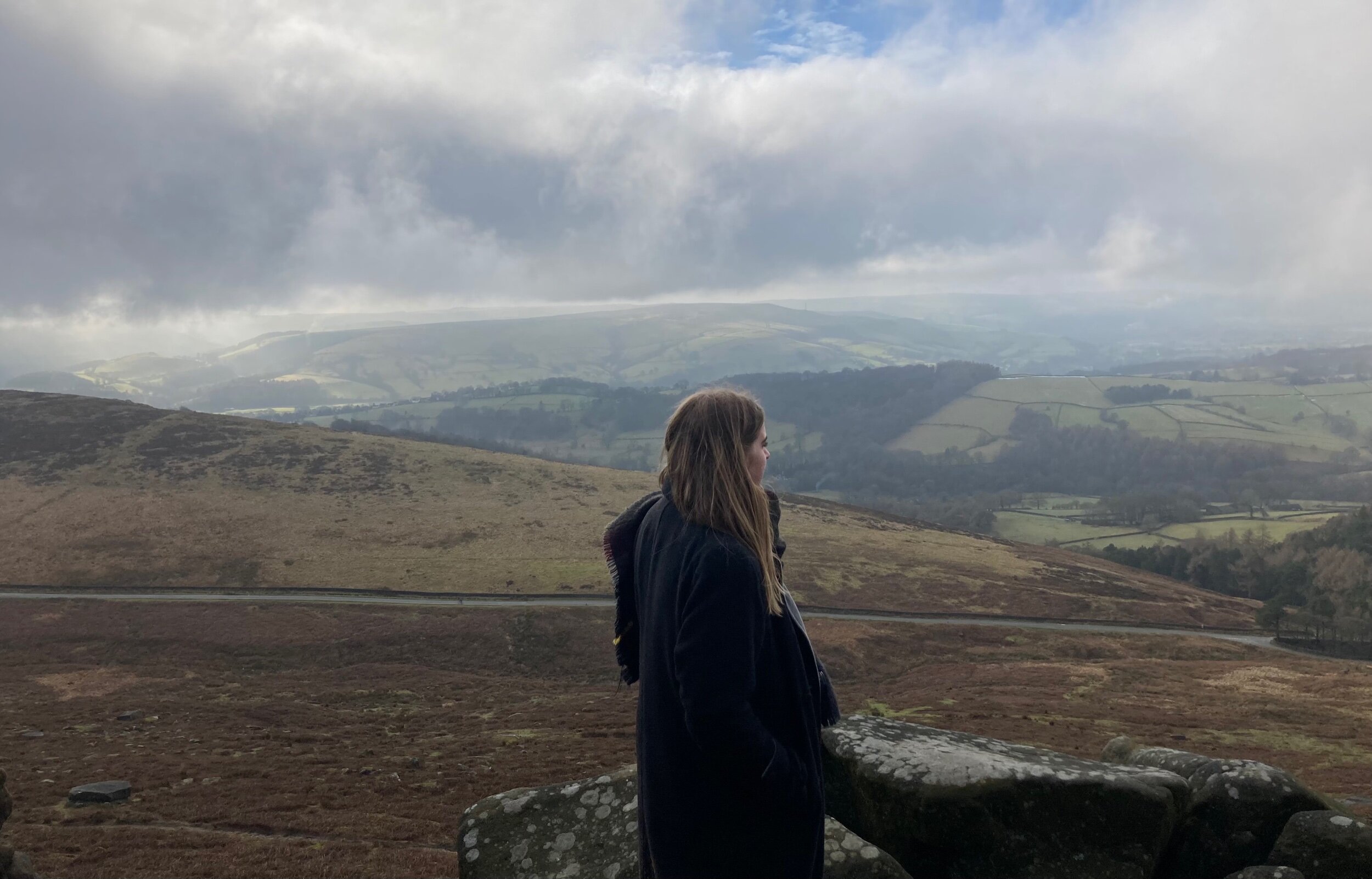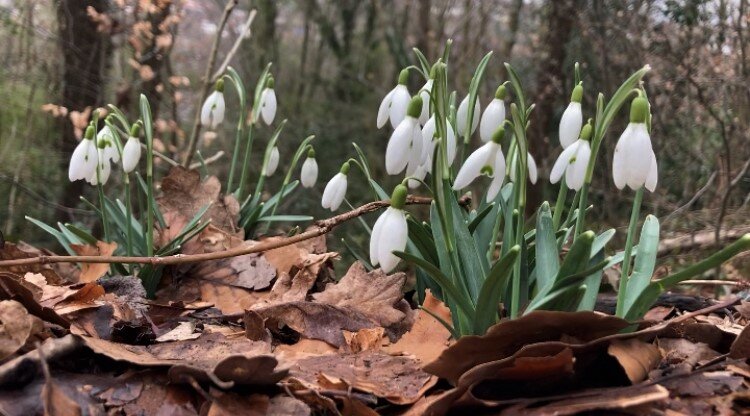MHAW: walking changed my relationship with my body
Reconnecting with nature helped Tabitha change her relationship with her body, now she wants to help others do the same
For as long as I can remember, my relationship with my body has been chaotic and unhealthy.
Sadly, this is the reality for such a vast number of young women that it has almost become a sort of horrible dystopian kind of normal. Our relationships with our bodies at some point — be it through cultural or environmental factors, psychological distress or even genetics — somehow, become heavily aesthetic and two dimensional.
We begin to view the body as this dispensable thing, disregarding physical wellbeing as a key contributor inboth functioning as a human and maintaining good mental health.
I was always an active person who loved being outdoors walking, but I never considered how pivotal my re-connection with traversing the countryside would be in my recovery journey. I’m privileged enough to live on the doorstep of the Peak District in Sheffield. It was only when I began solo hiking that I realised how incredibly lucky I was to live somewhere with so many accessible transport links to the countryside.
Initially, before my first walk, I was anxious about many things: being a woman walking alone, what I was wearing and how it fit me, whether I looked like I fitted the typical ‘hiker’ aesthetic (whatever that is, I don’t think I could pinpoint it myself), and if not, whether people would stare.
The anxiety on my 30-minute walk to the bus stop was crippling, to the point that I almost turned back and went home, but I stuck it out. Once on the bus and sat down, hidden from plain sight, I was safe in my bubble again and no one could look at me and my body. The bus slowly navigated the winding roads of the Peaks through vast thick purple carpets of heather, the beauty of which I was completely oblivious to, being so caught up in my own head.
I stepped off the at the Ladybower Inn and felt that stifling anxiety swiftly release from my body as I realised that I had space for myself, away from everything and everyone that was distressing me. It was then that I realised that being placed in nature, and out of the pressures and distractions of the city, gave me a sense of perspective I had have never anticipated.
Walking that day by myself forced me to be present with my body’s movement and with my surroundings and nothing else. The sights, smells, and sounds of the countryside were truly unparalleled and soothing for the soul. From the fantastic purple of the moorland and the musty smell of peat bogs to the wild, untameable wind along the Peaks, and that ever-present thrumming of birdsong.
Alone in this landscape, you are required to do what is taught countlessly in mindfulness therapy, to be aware of what you’re directly experiencing through your senses, without analysis or judgement.
The more I walked, week upon week, the more I began to appreciate and respect this thing, this complex mechanism that was carrying me these long distances. It was keeping me alive and enabling me to visit and traverse all of these beautiful places alone and on my own terms. I thought less and less about the shape and size of my body and more about its strength and flexibility, and simply whether it would get me to where I needed to be.
The seasons changed, and with that the landscape reformed, and my connection with the countryside became more profound and intimate. Nature is a constant for me, and is something I find dependable in a world full of changeability and fragility. The sight of snowdrops in March this year after what was an incredibly long winter, and my first catch of the unmistakeable cuckoo’s call will long resonate with me. I felt reassured that nature was stirring, budding and reawakening, and with that came a sense of hope.
Since choosing to recover from my illness, and exploring my love for walking further, the narrative between my body and mind has completely changed from one of two entities that were not considered mutually exclusive, in constant conflict.
Now, they work together harmoniously, as I am beginning to learn that one is not able to exist in its full capacity unless the other does also, and I want to live the best life that I possibly can. I’m also now in the process of rebuilding my trust with the biological instinct of hunger that, over the years, I had somehow become habitually dismissive of. I think sometimes about how much time I’ve spent hating my body, obsessing and restricting.
Those negative and damaging thoughts have encompassed so much of my life, and truthfully, it’s a tough reality to acknowledge. I can’t say for certain that the disorder mindset will ever go away fully, but I can say that walking has been invaluable in challenging it and forcing me to amend my priorities when it comes to my physical and mental wellbeing.
My navigation away from disordered eating has been long, emotional and in no way linear: I’d like to make that clear to those who may be still struggling with disordered eating, body dysmorphia or any other mind-body related mental illness.
I’m not saying that walking regularly will benefit every individual the way it has me, but I do believe that it has the incredible potential to help you redirect your relationship with your body from one of restriction and self-harm, to one of nourishment and self-love.





